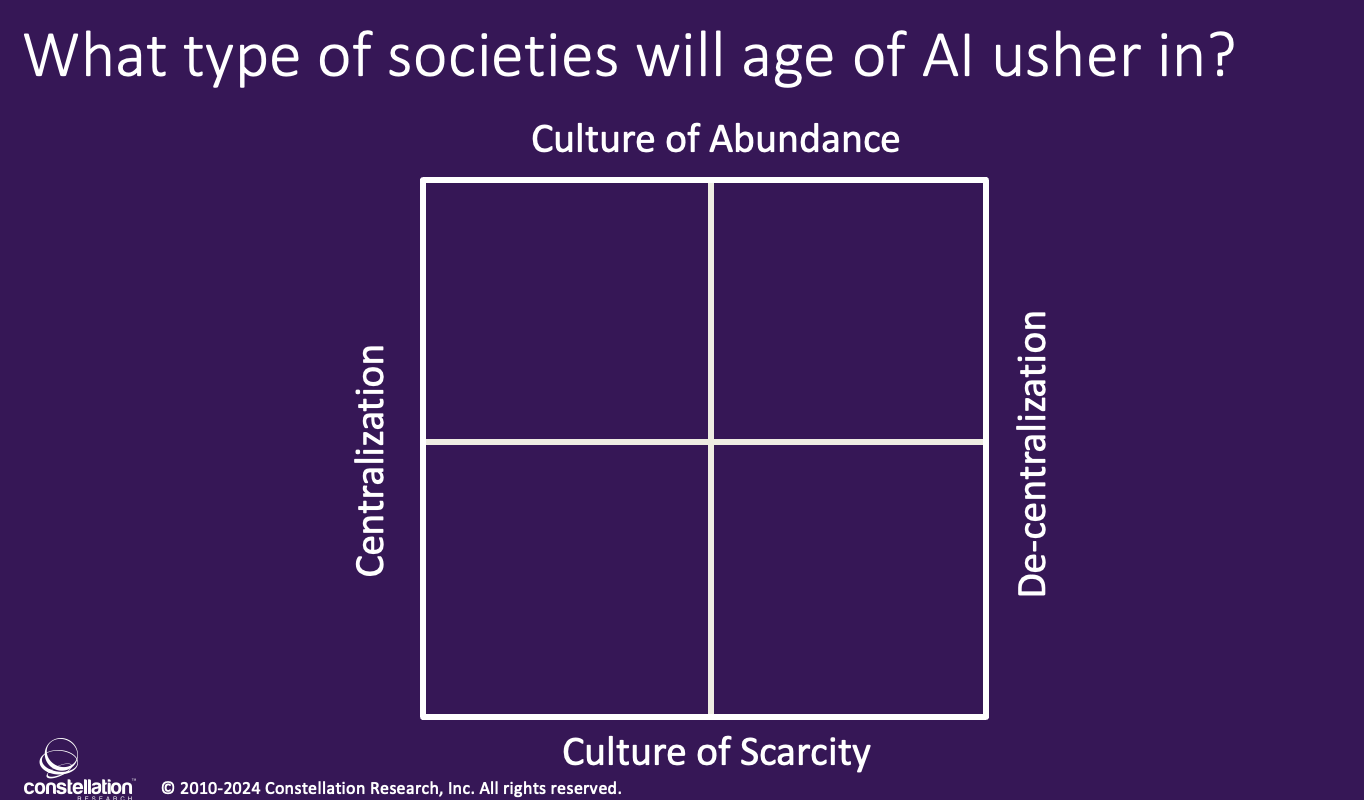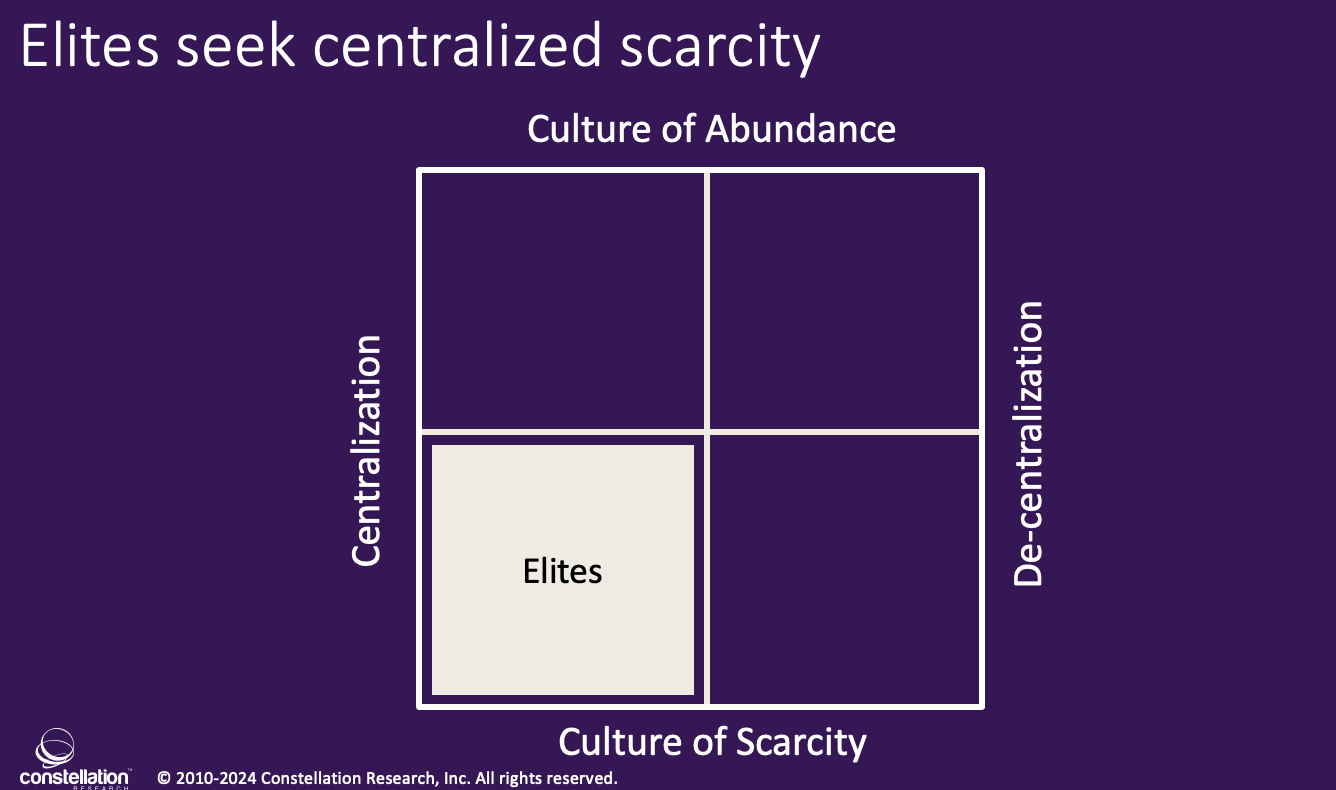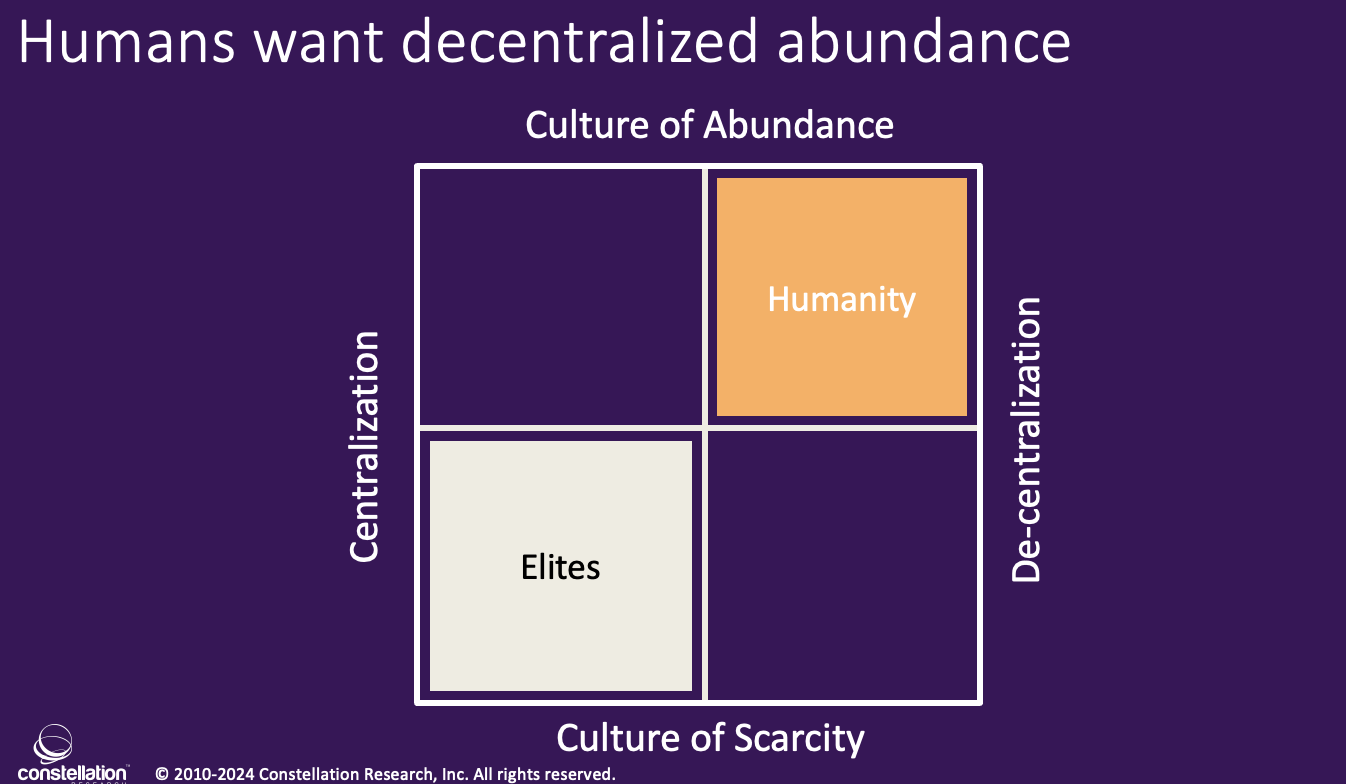Age of AI Ushers Exponential And Transformational Power In The Hands Of A Few
Society has often swung from centralization to decentralization and back in the distribution of power and rights. Living in a culture of abundance versus a culture of scarcity can alter the prioritization of decisions, the quality of interactions, and the overall optimism or pessimism of a society. AI has the power to transform societies for both good and evil.
Take the climate agenda. For the most part, the messages have focused on authoritarian control. People are told they can't eat meat, they need ot use less water, they have to stop traveling long distances, they need to get rid of their gas stove, they shouldn't do this and that. Centralized scarcity allows for massive authoritarian control. However, the objectives of a more efficient and green society could just as easily be achieved with decentralized abundance. In Tesla's Q1 2023 Investor Day, Elon Musk showed how less than .2% of the world's land area, 240 TW/h, and less than 10% of the world's GDP could be used to create sustainable and abundant energy. Over 10 years, this would require 1% of the world's global GDP to achieve this sustainable energy goal. Humanity ultimately innovates better with decentralized abundance. The goal is to create win-win-wins across the board.


Bottom Line: Free Societies Must Define Their Digital Rights Before Its Too Late
The rapid digitization of the physical world brings more centralized control in the hands of the few. Many of the global elite see AI as an opportunity to impress their values at scale without checks and balances and rigorous public discourse. Those who seek decentralized abundance, will have to work hard to battle the elites who seek centralized scarcity.
Free societies will have to modernize their rights and privileges for a digital age and for an age of AI. Freedom is at stake and humanity could face a dark ages without having these basic digital rights codified ahead of mass AI adoption. For countries such as the US, there is time to create a new constitutional convention codifying a digital rights built for the Age of AI. By defining your genomics, your personal data, and your digital footprint as a property right, this first step could provide a key protection in privacy. Other rights will preserve right that allow humans to operate at human scale in an ever growing machine scale world.
Your POV
Do you see a world of centralized scarcity or will humans achieve decentralized abundance? What digital rights should we fight for and preserve?
Add your comments to the blog or reach me via email: R (at) ConstellationR (dot) com or R (at) SoftwareInsider (dot) org. Please let us know if you need help with your strategy efforts. Here’s how we can assist:
- Developing your metaverse and digital business strategy
- Connecting with other pioneers
- Sharing best practices
- Vendor selection
- Implementation partner selection
- Providing contract negotiations and software licensing support
- Demystifying software licensing
Reprints can be purchased through Constellation Research, Inc. To request official reprints in PDF format, please contact Sales.
Disclosures
Although we work closely with many mega software vendors, we want you to trust us. For the full disclosure policy,stay tuned for the full client list on the Constellation Research website. * Not responsible for any factual errors or omissions. However, happy to correct any errors upon email receipt.
Constellation Research recommends that readers consult a stock professional for their investment guidance. Investors should understand the potential conflicts of interest analysts might face. Constellation does not underwrite or own the securities of the companies the analysts cover. Analysts themselves sometimes own stocks in the companies they cover—either directly or indirectly, such as through employee stock-purchase pools in which they and their colleagues participate. As a general matter, investors should not rely solely on an analyst’s recommendation when deciding whether to buy, hold, or sell a stock. Instead, they should also do their own research—such as reading the prospectus for new companies or for public companies, the quarterly and annual reports filed with the SEC—to confirm whether a particular investment is appropriate for them in light of their individual financial circumstances.
Copyright © 2001 – 2024 R Wang and Insider Associates, LLC All rights reserved.
Contact the Sales team to purchase this report on a a la carte basis or join the Constellation Executive Network


